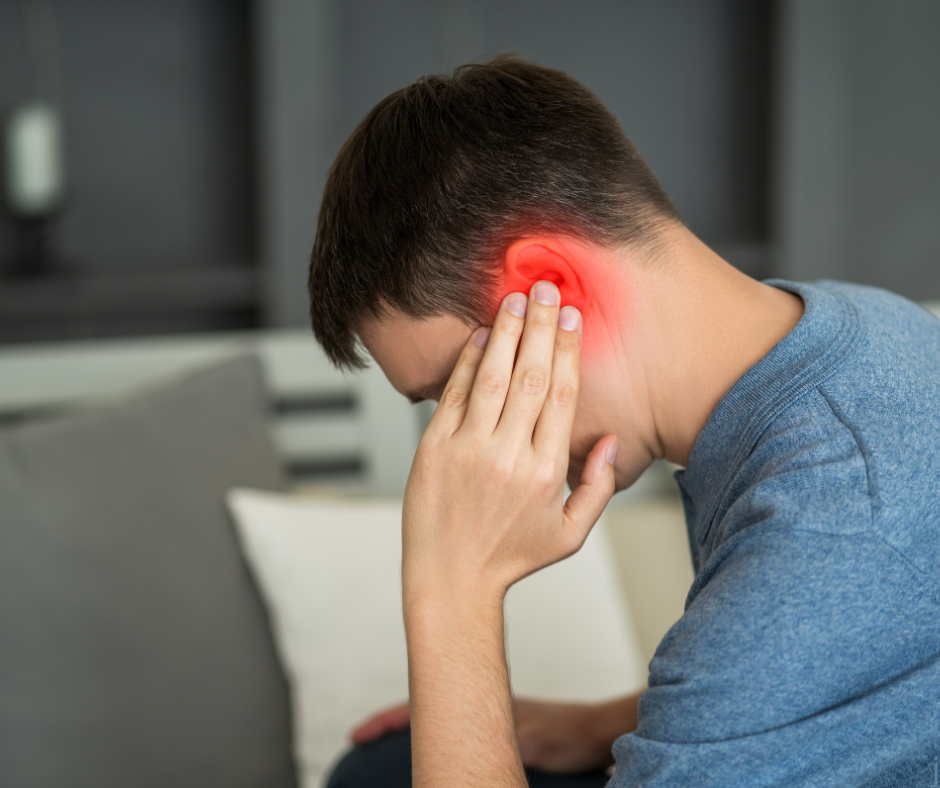
Did you know that a high proportion of the population suffers from tinnitus? In Canada, 37% of people report having experienced at least one episode of tinnitus over the past year. What is this little-known illness that affects so many people in their daily lives?
Popular belief holds that this problem is impossible to cure. However, while it cannot be eradicated, several methods and products can help relieve these disruptive noises.
Two types of tinnitus with multiple causes
Perceiving sound in the absence of auditory stimulus is commonly referred to as tinnitus. Whether it's a buzzing, ringing, humming, or whistling sound, tinnitus manifests itself as a different noise for each person affected.
Subjective tinnitus
Subjective tinnitus is caused by abnormal activity in the auditory cortex and can only be heard by the person affected. Its causes are multiple. For example, it can appear following trauma such as a loud noise, infections such as an ear infection, or be due to a dysfunction of the Eustachian tube .
Objective tinnitus
Much rarer, objective tinnitus is caused by noise generated in the structures surrounding the ear. Among other sources, dural arteriovenous malformations are sometimes the source of the sounds heard.
Widely variable side effects
Tinnitus, when occasional and short-lived, has little effect on the person hearing it. However, if you experience ringing or whistling in your ears, talk to your doctor, who will assess whether the tinnitus may be related to another disorder.
When tinnitus lasts a long time, is constant, and affects both ears, it can have a more serious impact on health. For some people, it becomes bothersome enough to prevent them from sleeping and make them anxious or depressed.
Who is at risk of developing tinnitus?
Subjective tinnitus has four main causes.
The loud noise
People who attend many concerts or stand near amplifiers will likely hear an intermittent ringing in their ears a few years later.
Aging
Hearing loss is normal in aging people and is associated with tinnitus. Among those aged 65 and over, 1 in 4 people have significant hearing loss. This is why many of them complain of tinnitus.
Meniere's disease
At any age, tinnitus can be caused by Meniere's disease . In Europe and North America, it affects between 1/1,000 and 1/10,000 people, depending on the study. It is a disorder of the inner ear that causes dizziness and hearing loss, in addition to tinnitus.
Medication
Some medications called ototoxic can affect the ears. Examples include salicylates such as aspirin and aminoglycoside antibiotics. Loop diuretics, particularly those used to treat hypertension and kidney failure, and certain chemotherapy drugs are also potential culprits.
In these cases, tinnitus usually begins at the same time as taking the medication, but sometimes it only appears a few months after starting the medication. Once the link between tinnitus and medication is established, it is important to react quickly. If the problem is caught early, there is a good chance that the tinnitus will significantly diminish or even disappear completely. If this is not the case, the use of a device may be necessary.
In any case, you must be accompanied by a health professional if this situation arises.
How to reduce and relieve tinnitus?
Tinnitus can only be completely stopped in rare cases. However, it diminishes in most people after proper treatment. Certain techniques and natural products can help manage its symptoms effectively.
Two natural products
Specifically formulated to relieve the symptoms associated with these disturbing noises, the Tinnitus granule complex is recommended as a complement to traditional medical treatment. It comes in a very convenient format, allowing us to take it wherever we go, allowing us to take it as needed.
These granules are not habit-forming and should be taken between meals. It is recommended to dissolve 3 to 5 granules under the tongue, two to three times a day. When symptoms improve, the frequency of doses can be reduced.
THE Tinnitus tablets of Code Red consist of a list of ingredients very similar to that of the granules. Your preference in terms of format can guide your choice of product. This homeopathic complex offers 60 chewable tablets, three times a day and between meals. It helps relieve tinnitus, but also ear pain and swelling.


Medical methods
When medication is the cause of tinnitus, it can often be addressed directly by consulting a healthcare professional. If the cause is related to deafness, a hearing aid may be able to help those suffering from it. For half of patients, hearing correction relieves tinnitus.
Additionally, stress and stimulants like caffeine can worsen tinnitus symptoms. Therefore, relaxation methods like yoga help reduce its presence. Compensatory strategies like listening to white noise also promote sleep, as the background noise masks the tinnitus.
Complementary approaches to traditional medicine, such as osteopathy and homeopathy, have beneficial effects for people suffering from this condition.
Many people will experience the effects of tinnitus at some point in their lives. Those experiencing significant discomfort can consult specialized clinics that offer comprehensive tinnitus management programs. If you have any concerns, contact a healthcare professional.
You might also like:
Homeopathy to reduce muscle pain
6 tips for recovering well after exercise
Managing burnout with homeopathy